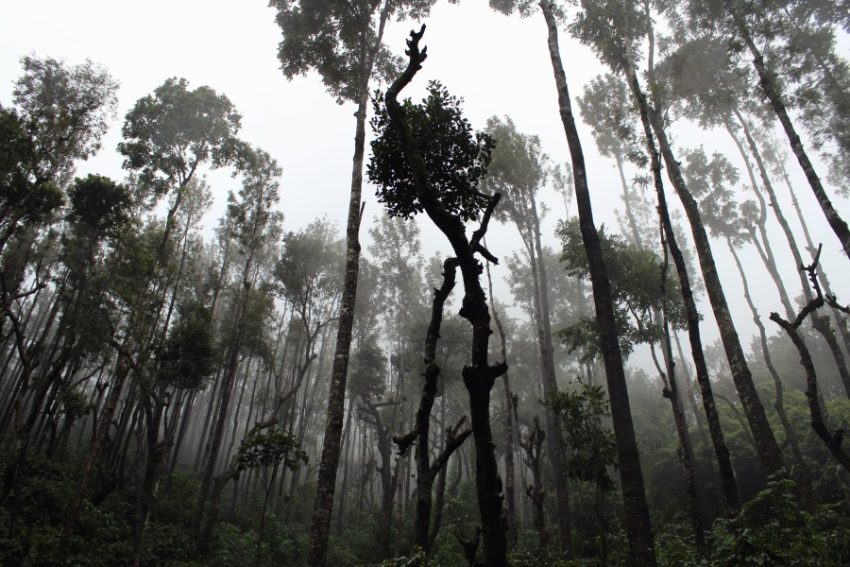In a world where climate alarmism seems to intensify every few months, the absurdity of their arguments also increases, and in this instance, we’ll be discussing the supposed “collapse” of nature’s carbon sink. According to The Guardian’s October 2024 piece, land, forests, and soils barely absorbed any CO2 in 2023, spelling doom for global climate models and forcing us all to slash emissions even harder. They paint a picture of crumbling ecosystems: boreal forests ravaged by beetles and fires, the Amazon turning into a net CO2 spewer thanks to droughts and deforestation, and soils belching out more carbon as temperatures rise. Experts quoted in the article, from the Potsdam Institute to Exeter University, warn that our reliance on natural sinks is a fool’s gamble, and without massive tech interventions, we’re toast.
This narrative fits the familiar script of impending catastrophe, where every weather event or data blip becomes proof of irreversible tipping points. But hold on. While the Guardian cherry-picks a single anomalous year and regional woes to fuel the fire, the actual science tells a far more resilient story. Far from collapsing, trees across key ecosystems are sucking up more CO2 than ever, bulking up in response to elevated atmospheric levels. Take the Amazon rainforest, often trotted out as the poster child for climate peril. A comprehensive study spanning decades reveals that its trees are not just surviving; they are getting fatter, with an average 3.3 percent increase in basal circumference every decade since the 1970s. This growth spans all tree sizes, from saplings to giants, locking away substantial carbon and showing a “benefits shared” dynamic that boosts overall forest resilience.
Researchers behind this work, a collaboration of nearly 100 tropical plant scientists analyzing data from 188 plots across the Amazon from 1971 to 2015, emphasize that this CO2 fertilization effect is making the rainforest more robust against warming trends. Sure, threats like wildfires and heat stress loom on the horizon, but the data upends the defeatist view that forests are passive victims. Instead, elevated CO2 acts like a growth steroid for vegetation, enhancing photosynthesis and water-use efficiency. This isn’t some fringe theory; it’s backed by long-term monitoring that predates the Guardian’s doomsday snapshot. And it’s not isolated to the Amazon. Global greening trends, observed via satellite imagery, show Earth’s leafy cover expanding by about 5 percent since the 1980s, largely thanks to CO2’s role as plant food.
So why the relentless drumbeat of despair? Why ignore evidence of thriving forests to amplify a temporary dip in one year’s land sink? The answer lies less in science and more in the machinery of power and profit. Climate hysteria serves as a perfect Trojan horse for expanding government control. By framing every natural fluctuation as a crisis engineered by human “abuse,” elites justify sweeping regulations on energy, travel, and land use. Think carbon taxes that hit everyday folks hardest, or mandates dictating what farmers can grow and how. In the agricultural realm, this translates to “sustainable” schemes that seize farmland for rewilding projects, sidelining productive crops in favor of tree-planting subsidies that enrich connected NGOs. AgroWars readers know this all too well: the war on meat, the push for lab-grown slop, and the demonization of fertilizers, all wrapped in the guise of saving the planet.
Then there’s the money trail. The “green” boondoggle economy is a trillion-dollar racket, funneling taxpayer cash into windmills that barely spin, solar panels that fizzle in the rain, and electric vehicle mandates that strain grids built on coal. The Guardian’s sink-collapse tale bolsters the case for even more: international funds for “nature-based solutions,” carbon credits traded like casino chips, and grants for researchers who toe the alarmist line. Dissenters? Labeled deniers and starved of funding. It’s a self-perpetuating cycle where fear drives dollars, and dollars drive more fear.
Lurking beneath it all is a darker undercurrent: depopulation agendas dressed up as environmental salvation. When natural systems like forests prove more adaptive than advertised, the narrative shifts to human overpopulation as the root evil. Why else hype scenarios where billions must be reined in to “save” a planet that keeps absorbing our emissions? It’s control by another name, whispering that fewer people means less strain, paving the way for policies on reproduction, migration, and resource rationing. We’ve seen glimmers in UN reports and billionaire manifestos, all echoing the same tune: the Earth can sustain far fewer of us if we just listen to the experts.
But here’s the truth AgroWars stands for: nature is tougher than the fear-mongers admit. Trees are not frail sentinels on the brink; they are dynamic powerhouses, fattening up on the very CO2 we’ve added. This doesn’t absolve us from stewardship, of course. Smart farming, reforestation without the hysteria, and innovation in agriculture can harness these benefits. Yet peddling collapse myths only distracts from real solutions, like empowering local growers over globalist overlords. Next time you hear the sink has sunk, remember the Amazon’s girth. It’s growing, not groaning. And so should our skepticism.


